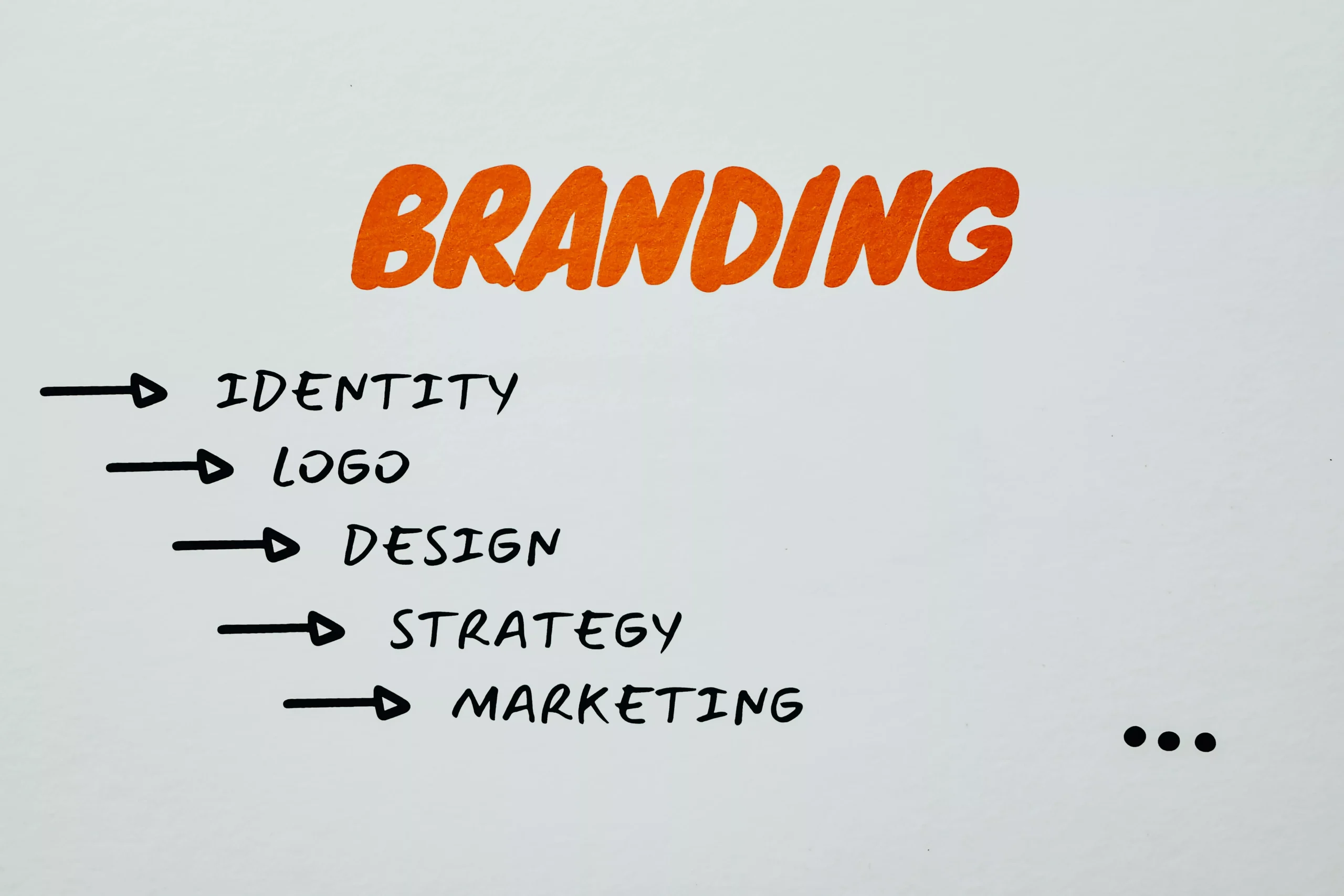Effective Search Engine Optimization is essential for any business that wants to succeed in the online world.
However, many businesses struggle with making their SEO efforts work. If you are one of them, you are not alone.
There are many reasons why your Search Engine Optimization strategy may not be working, and in this article, we will explore some of the most common ones and provide you with useful solutions to help you improve your SEO.
One of the most common reasons why Search Engine Optimization doesn’t work is that businesses fail to optimize their website properly.
Without proper on-page optimization, even the most brilliant content can get lost in the search engine shuffle. Another reason for ineffective SEO is the lack of a clear strategy.
Many businesses start with a checklist or set of tactics without direction, which can lead to poor results.
Other reasons for ineffective Search Engine Optimization include indexability issues, ineffective keyword strategy, and using outdated or ineffective SEO methods.
However, there are many solutions to these problems, such as improving on-page optimization, developing a clear Search Engine Optimization strategy, fixing indexability issues, and using effective keyword research.
In the following sections, we will explore these reasons in more detail and provide you with useful solutions to help you improve your SEO.
If you SEO efforts are not yielding desired results, read on, you are sure to find one or two things you’re not doing right.
Once you find them, make the necessary amends to start getting the best out of your Search Engine Optimization.
Common Search Engine Optimization Pitfalls
When it comes to SEO, there are common pitfalls that many website owners fall into.
These mistakes can hinder your website’s ranking on search engines and make your Search Engine Optimization efforts ineffective.
In this section, we’ll take a look at some of the most common Search Engine Optimization pitfalls and how to avoid them.
Ignoring Search Engine Guidelines
One of the biggest mistakes website owners make is ignoring search engine guidelines.
Search engines like Google and Bing have specific guidelines that dictate how websites should be optimized for search.
Ignoring these guidelines can result in penalties or even a complete removal from the search engine index.
To avoid this pitfall, it’s important to familiarize yourself with search engine guidelines and ensure that your website is optimized in accordance with them.
This includes avoiding tactics like keyword stuffing, cloaking, and link schemes.
Over-Reliance on Keywords
While keywords are an important part of Search Engine Optimization, over-reliance on them can be detrimental to your website’s ranking.
Keyword stuffing, or the practice of cramming as many keywords into your content as possible, is a common mistake that can result in a penalty from search engines.
To avoid this pitfall, focus on creating high-quality content that provides value to your audience. Use keywords naturally and strategically, rather than trying to force them into your content.
Neglecting Mobile Optimization
With more and more people accessing the internet on mobile devices, neglecting mobile optimization can be a costly mistake.
If your website isn’t optimized for mobile, you could be missing out on a significant amount of traffic.
To avoid this pitfall, ensure that your website is mobile-friendly and optimized for different screen sizes.
This includes using a responsive design, optimizing images, and ensuring that your website loads quickly on mobile devices.
By avoiding these common Search Engine Optimization pitfalls, you can ensure that your website is optimized for search engines and ranking well on search engine results pages.
Technical SEO Challenges
Technical SEO is a crucial aspect of optimizing a website for search engines. There are several technical challenges that can hinder your Search Engine Optimization efforts.
Let’s discuss some of the most common technical Search Engine Optimization challenges and their solutions.
Site Performance Issues
Site performance is a critical factor in SEO. A slow-loading website can negatively impact your search engine rankings.
If your website takes too long to load, users are likely to leave, which can increase your bounce rate. To improve your site’s performance, you can:
- Optimize images: Large images can slow down your site. Compress images to reduce their size without compromising their quality.
- Use caching: Caching can improve your site’s speed by storing frequently accessed data in temporary storage.
- Minimize HTTP requests: Reduce the number of HTTP requests by combining files and scripts.
Improper Indexing Strategies
In the simplest of terms, indexing is the process of adding web pages to a search engine’s database.
Proper indexing is essential for your website to appear in search engine results. Here are some common indexing challenges and their solutions:
- Duplicate content: Duplicate content can confuse search engines and negatively affect your rankings. Use canonical tags to indicate the original content.
- Noindex tag: Using the noindex tag can prevent search engines from indexing pages. Use this tag only for pages that you don’t want to appear in search results.
- Robots.txt: The robots.txt file can block search engines from crawling certain pages. Use it carefully to avoid blocking important pages.
Misuse of Tags
Tags are essential for Search Engine Optimization, but misusing them can harm your rankings. Here are some common tag-related challenges and their solutions:
- Title tags: The title tag is one of the most critical on-page SEO elements. Make sure your title tags are descriptive and contain relevant keywords.
- Meta descriptions: Meta descriptions provide a summary of a web page’s content. Use them to entice users to click through to your site.
- Header tags: Header tags help structure your content and make it easier to read. Use them to organize your content and improve its readability.
By addressing these technical Search Engine Optimization challenges, you can improve your website’s search engine rankings and attract more traffic to your site.
Content Optimization Mistakes
When it comes to SEO, content optimization is one of the most important factors to consider.
However, there are several common mistakes that can hinder the effectiveness of your content optimization efforts. In this section, we will discuss some of these mistakes and provide useful solutions.
Duplicate and Thin Content
Duplicate content refers to content that appears on multiple pages of your website or on other websites.
This can negatively impact your Search Engine Optimization efforts as search engines may have difficulty determining which page to rank for a particular search query.
On the other hand, thin content refers to content that lacks substance or value.
This can also harm your SEO efforts as search engines prioritize high-quality content that provides value to users.
To avoid these issues, you should:
- Conduct a content audit to identify pages with duplicate or thin content
- Consolidate or remove duplicate content
- Rewrite thin content to provide more value to users
- Use canonical tags to indicate the preferred version of a page with duplicate content
Ineffective Use of Images and Alt Tags
Images can enhance the visual appeal of your website and provide additional context to your content.
However, ineffective use of images and alt tags can negatively impact your Search Engine Optimization efforts.
Alt tags are used to describe the content of an image to search engines and users who are visually impaired.
To optimize your images and alt tags, you should:
- Use high-quality images that are relevant to your content
- Compress images to improve page load times
- Use descriptive alt tags that accurately describe the content of the image
- Avoid keyword stuffing in alt tags
Lack of Relevant and Engaging Content
Relevant and engaging content is crucial for SEO as it provides value to users and encourages them to spend more time on your website.
However, many websites fail to provide content that is both relevant and engaging.
To create relevant and engaging content, you should:
- Conduct keyword research to identify topics that are relevant to your audience
- Use a variety of content formats such as blog posts, infographics, and videos
- Write in a conversational tone to engage your audience
- Use headings, bullet points, and other formatting to make your content easy to read and scan
Avoiding these content optimization mistakes and implementing the solutions provided will improve the effectiveness of your SEO efforts and increase your website’s visibility in search engine results pages.
Link Building Errors
Link building is an essential aspect of Search Engine Optimization, but it is also an area that is prone to errors.
Here are some common link-building errors that can affect your SEO efforts, along with some useful solutions.
Poor Quality Backlinks
One of the most common link-building errors is the accumulation of poor-quality backlinks.
Poor-quality backlinks are links from websites that have low domain authority, irrelevant content, or a history of spamming.
These links can hurt your Search Engine Optimization efforts, as search engines may view them as attempts to manipulate search results.
To avoid poor-quality backlinks, focus on building links from high-quality websites that have relevant content and a good reputation.
You can use tools like Ahrefs or SEMrush to identify high-quality websites in your niche.
Broken Links and Internal Linking Issues
Broken links and internal linking issues can also affect your Search Engine Optimization efforts.
Broken links are links that lead to non-existent or inaccessible pages, while internal linking issues refer to problems with the structure and organization of your website’s internal links.
Broken links and internal linking issues can negatively impact user experience, hinder search engine crawling, and decrease search rankings.
To avoid these issues, regularly audit your website for broken links and internal linking issues. You can use tools like Google Search Console or Screaming Frog to identify and fix these issues.
And if you’re using WordPress, a simple tool like Broken Links Checker can help you check for and remove broken links.
Redirects too are not good for your website. Instead of having the browser bounce around before getting to the landing page, fix redirects so the user can get to the linked page with a single request.
Search Engine Optimization Strategy and Planning
When it comes to SEO, proper planning and strategy are crucial for achieving success.
Without a well-thought-out plan, your Search Engine Optimization campaign is likely to fail. Here are some common reasons why your SEO strategy might not be working and how to fix it.
Lack of Keyword Research
One of the most common reasons why SEO strategies fail is the lack of proper keyword research.
Keyword research is the foundation of any successful Search Engine Optimization campaign. Without it, you won’t know what keywords to target, and your content won’t be optimized for the right search terms.
To avoid this, you need to conduct thorough keyword research.
Look for keywords that are relevant to your business and have high search volumes.
Use tools like Google Keyword Planner, SEMrush, and Ahrefs to find the right keywords for your content.
No Clear Search Engine Optimization Goals
Another reason why SEO strategies fail is the lack of clear goals. Without clear goals, it’s difficult to measure the success of your SEO campaign.
You need to know what you want to achieve and how you’re going to achieve it.
To avoid this, set clear goals for your Search Engine Optimization campaign. Do you want to increase traffic to your website?
Do you want to improve your search engine rankings? Do you want to generate more leads or sales?
Once you have clear goals, you can develop a strategy to achieve them.
By taking the time to plan and strategize your SEO campaign, you can avoid common pitfalls and achieve success.
Conduct thorough keyword research, set clear goals, and develop a strategy that is tailored to your business.
With the right approach, you can improve your search engine rankings and drive more traffic to your website.
Search Engine Optimization Tools and Analytics
To improve your SEO strategy, it’s essential to utilize SEO tools and analytics that help you track your website’s performance and identify areas that need improvement.
Here are some common mistakes to avoid when using SEO tools and analytics:
Not Utilizing SEO Tools Effectively
SEO tools such as Google Search Console and Pagespeed Insights provide valuable insights into your website’s SEO performance.
However, not using these tools effectively can hinder your Search Engine Optimization efforts. For instance, if you don’t regularly check for indexing errors and broken links, your website’s ranking can suffer.
To avoid this, it’s important to use SEO tools regularly and effectively. Make sure to check for errors and warnings and take appropriate action to fix them.
Additionally, use the data provided by Search Engine Optimization tools to optimize your website’s content, meta tags, and other SEO elements.
Ignoring Analytics and Performance Metrics
Ignoring analytics and performance metrics can lead to ineffective SEO strategies.
Analytics tools such as Google Analytics provide valuable data on your website’s traffic, user behavior, and conversion rates.
Ignoring this data will cause you to miss out on opportunities to improve your website’s performance and increase your ROI.
To avoid this, regularly review your website’s analytics and performance metrics.
Use the data to identify areas that need improvement and adjust your Search Engine Optimization strategy accordingly.
For instance, if you notice a high bounce rate on certain pages, use analytics data to identify the cause and take appropriate action to improve user engagement.
By utilizing SEO tools and analytics effectively, you can improve your website’s SEO performance and achieve better rankings on search engines.
User Experience and SEO
User experience (UX) is an essential aspect of website design that can significantly affect your site’s search engine optimization (SEO).
Ignoring UX issues on your website can lead to ineffective SEO and poor user engagement.
Although Google will tell you that core web vitals is not a direct ranking factor, technically it is.
And I think it has a lot to do with user experience.
Here are some common UX issues that can negatively impact your SEO and some useful solutions to address them.
Ignoring User Experience Factors
Ignoring UX factors can lead to poor user engagement, which can negatively impact your SEO.
For instance, if your website has a slow load time, users are likely to leave your site, leading to a high bounce rate.
High bounce rates can signal to search engines that your website is not relevant or engaging, which can negatively affect your SEO.
To address this issue, ensure that your website has a fast load time.
You can achieve this by optimizing your images, minimizing HTTP requests, and using a content delivery network (CDN).
Additionally, ensure that your website is mobile-friendly and has a responsive design to enhance user experience.
Website Navigation and Structure Flaws
Website navigation and structure flaws can also negatively affect your UX and SEO.
If your website has a complicated navigation structure, users are likely to have a hard time finding the information they need, leading to a high bounce rate.
Additionally, if your website has broken links or 404 errors, users are likely to leave your site, leading to poor user engagement.
To address this issue, ensure that your website has a clear and straightforward navigation structure.
Use descriptive labels for your menu items and ensure that your website’s pages are well-organized.
Additionally, ensure that your website has no broken links or 404 errors by regularly checking for broken links and updating your website’s content.
SEO Best Practices and Trends
When it comes to SEO best practices, several key strategies can significantly impact your website’s visibility and ranking on search engine results pages.
1. Valuable Content: Focus on creating high-quality, valuable content that resonates with your target audience. Engaging content not only attracts visitors but also encourages them to spend more time on your website, signaling its relevance to search engines.
2. Strategic Keyword Usage: Utilize relevant keywords strategically throughout your content, ensuring a natural and seamless integration. Avoid keyword stuffing, as search engines prioritize user-focused, informative content over keyword density.
3. Mobile Optimization: Optimize your website for mobile devices to provide a seamless and user-friendly experience. With the increasing prevalence of mobile browsing, search engines prioritize mobile-friendly websites in their rankings.
4. Backlink Building: Building a strong network of high-quality backlinks from reputable websites remains a crucial aspect of effective SEO. Quality backlinks from authoritative sources signal to search engines that your website is a reliable and trustworthy source of information.
5. Voice Search Optimization: Most SEOs ignore this part of the business. Some know nothing about it. But do your best to tailor your content to match natural language queries and long-tail keywords to improve visibility in voice search results.
6. AI and Machine Learning Integration: Embrace AI and machine learning technologies to understand user search intent and deliver personalized content.
7. Visual Search Optimization: Optimize your content for images and videos to enhance visibility in visual search results.
8. User Experience: Prioritize user experience by ensuring easy navigation, fast loading times, and engaging website design.
9. Local SEO: If applicable, optimize your website for local search by claiming your Google My Business listing and ensuring consistent NAP (Name, Address, Phone Number) information.
10. Regular Monitoring and Adaptation: Continuously monitor your website’s performance, adapt your strategies based on data insights, and stay informed about the latest Search Engine Optimization trends and algorithm updates.
By implementing these SEO optimization tips, you can enhance your website’s visibility, attract organic traffic, and improve its overall performance in search engine results pages.
Future SEO Trends
As the digital landscape continues to evolve, several emerging trends are poised to shape the future of Search Engine Optimization.
Stay ahead of the curve by considering the following future SEO trends:
- Voice Search Optimization: With the increasing prevalence of voice-enabled devices, optimizing your content for voice search is becoming increasingly important. Tailoring your content to match natural language queries and long-tail keywords can enhance its visibility in voice search results.
- AI and Machine Learning Integration: Embracing AI and machine learning technologies to understand user search intent and deliver personalized content will be crucial for staying competitive in the evolving search landscape. Utilize these technologies to analyze user behavior and preferences, enabling you to tailor your content to meet their needs effectively.
- Visual Search Optimization: The rise of visual search signifies the increasing importance of optimizing your content for images and videos. Implementing descriptive image tags, optimizing image file sizes, and providing high-quality visual content can enhance your website’s visibility in visual search results.
- User Experience and Website Performance: Search engines are placing greater emphasis on user experience and website performance as ranking factors. Prioritizing factors such as easy navigation, fast loading times, mobile responsiveness, and engaging website design can significantly impact your website’s rankings.
- E-E-A-T (Experience, Expertise, Authoritativeness, Trustworthiness): Google’s emphasis on E-E-A-T signals the importance of establishing your website as a reliable and trustworthy source of information. Experience, is a factore machines don’t have. When creating content with AI writer, try to include your experience. This will make your content more relatable and trustworthy. Demonstrating expertise too,, building authority, and fostering trustworthiness through high-quality content and reputable backlinks can positively impact your website’s rankings.
- Featured Snippets and Rich Results: Optimizing your content to appear in featured snippets and rich results can enhance your website’s visibility in search engine results pages, providing valuable exposure and driving organic traffic.
- Local SEO and Google My Business: If your business serves a local audience, optimizing your website for local search and leveraging Google My Business can significantly boost your visibility in local search results and Google Maps.
Staying informed and proactive in implementing these future Search Engine Optimization trends will position you and your business for success and continued growth in the dynamic world of search engine optimization.
Keep learning, adapting, and optimizing to stay ahead in the ever-changing SEO landscape.



